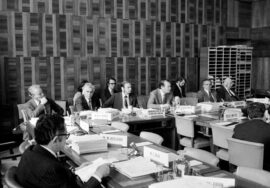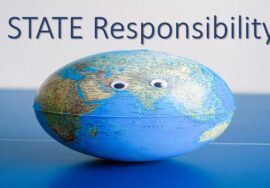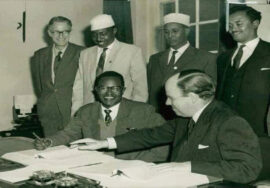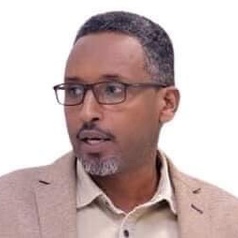
African International Relations and Somaliland’s lacking international recognition
African International Relations and Somaliland’s lacking international recognition
Somaliland has for the past four decades functioned as an independent country with important state-like structures. The fact that no African country seems to be ready to be the first to recognize Somaliland (while many are happy to be the second) may yet prove the most considerable obstacle for Somaliland’s recognition in the present.
Introduction
Since the fall of Siyad Barre (Somalia’s long serving dictator president) in 1991, Somalia ceased to function as a unified state with centralised political and security authority. While much of Somalia descended into civil war in 1991, Somaliland avoided large scale war and devastation by reclaiming its independence as the Republic of Somaliland. In fact, the Republic of Somaliland had previously existed as an independent, sovereign, and internationally recognised state in 1960 before its illegal ill-fated unification with Somalia.
Somaliland reclaiming Independence in 1991
During the period of colonialism from roughly the 1880s to World War Two, the lands inhabited by Somali peoples were administered by various non- Somali forces: the French (Djibouti), the British (Somaliland, and Northern Kenya), the Italians (Somalia). As a result of these different foreign administrations and their administrative and governance traditions, the inhabitants of these regions experienced very different colonial legacies.
The British, for example, favoured a limited or “thin” involvement in Somaliland and invested meagerly in the local infrastructure with minimal numbers of British settlements, whereas the Italians invested more in Somalia and encouraged Italian settlement and the development of local agriculture (Lewis 2008: 30-31). It will suffice to say that different administrative languages coupled with different governing traditions paved the way for severe difficulties for Somalis tried to bringing the two colonial territories together upon independence. The British protectorate of Somaliland gained independence on 26 June 1960, four days before it joined Italian Somalia on 1 July to form the new Republic (Lewis 2008: 33). This fact is highly important regarding Somaliland’s current sovereignty claims and drive for international recognition as it serves to prove Somaliland was once an internationally independent political entity even if for only four days.
The Players I: Continental African Heavyweights
Egypt
Egypt is a staunch supporter of Somalia unity and the leaders in Mogadishu; a policy in line with its desires for a strong and unified Somalia which may even one day re-assert its claims over Somali populated areas of Ethiopia, thereby adding to Egypt’s leverage (Shinn 2002: 5). Moreover, Egypt’s enthusiastic support for the interim rulers in Mogadishu has “been matched by its hostility towards Somaliland” (Geldenhuys 2009: 142).
Egypt’s opposition to Somaliland’s independence dates back to the early 1990s, and the days of UN Secretary General Boutros Boutros-Ghali. John Drysdale, a notable UN delegate and scholar of Somaliland, recounted in a 2004 workshop in Somaliland how Boutros-Ghali tried everything in his power to prevent and reverse Somaliland’s declaration of independence, even going to the extent of making a bid via the UN to have Egyptian troops deployed in Berbera as part of a “peacekeeping” presence that would have given Egypt a major strategic military foothold in the Horn of Africa.
The Arab League, of which Somalia is a member, has been a strong supporter of Somalia and Somali unity, and opposes Somaliland’s independence. This situation is complex because Gulf States pose a large dilemma for Somaliland. While Somaliland does not view the Arab League favourably, mostly due to its support for the Somalia federal, it still needs to plot a non- confrontation course due to its dependency on Saudi demand for the country’s livestock.
South Africa
Of the African states not neighbouring Somaliland, South Africa has emerged as the main state “willing to entertain Somaliland’s case for international recognition” (Jhazbhay 2007: 284). This view is motivated by several reasons. In April 2003 the Office of the Chief State Law Adviser, Department of Foreign Affairs of South Africa authored a legal brief on “Somaliland’s Claim to Sovereign Status”. The brief found that “it is undeniable that Somaliland does indeed qualify for statehood, and it is incumbent upon the international community to recognise it” (quoted in Jhazbhay 2007: 258; also see Clapham et. al. 2011: 24). Therefore, since 2003 the South African government has been made aware by its own legal staff that Somaliland qualifies for statehood, and this has influenced the government’s stance on understanding, rather than dismissing, Somaliland’s recognition aspirations. South African media have been somewhat impressed by the abilities of Somaliland’s leaders in stabilizing the country, especially when contrasted with Somalia, and in the past decade Somaliland has enjoyed an especially close relationship with South Africa (Ibid.: 285; ICG 2006: 14).
Both previous Somaliland presidents Egal and Kahin have made several official visits to South Africa, and the medical treatment of late President Egal in a South African military hospital in Pretoria, where he eventually died, is indicative of a close relationship between the two states. Further indication of this close relationship is the fact that the South African Department of Foreign Affairs would even investigate Somaliland’s case for independence in the first place, especially in light of the AU’s and most African states’ reluctance to engage with secessionist movements which may violate territorial integrity of AU member countries. South Africa may still be unwilling to take the first step in recognising Somaliland, but as a rare state which has fostered a long-term engagement with Somaliland, it has encouraged and influenced the AU to send fact finding missions to the country and remains a key ally in the AU (Bradbury 2008: 255).
The Players II: Horn of Africa neighbours
Ethiopia
Ethiopia currently stands as the most strategic (and perhaps most sympathetic) African actor in Somaliland’s recognition bid. In the murky world of international relations and political calculations Ethiopia has several concerns in mind when dealing with Somaliland. These issues can broadly be divided into three overlapping categories: Ethiopia’s own needs and bilateral relationship with Somaliland, Ethiopia’s security calculus vis-à-vis Somalia in general, and Ethiopia’s geo-political calculus vis-à-vis Egypt and the Arab League.
Since the fall of Barre, and Somaliland’s reclaiming of its independence, Ethiopia has become a close partner to Somaliland, especially as the two countries are closely connected by issues of Somali pastoralist migration, refugees, and the Khat trade.7 Also, Ethiopia is Africa’s second largest country in terms of population, yet it is a land locked country, and in order to feed its rapid development is in desperate need of sea outlets for purposes of trade and energy security. Somaliland, on the other hand, is in dire need of business for its ports, and its main port of Berbera offers a valuable outlet for Ethiopia’s needs.
Ethiopia has signed various bilateral trade agreements with Somaliland, has opened a liaison office in Hargeisa (allowing Somaliland to do the same in Addis Ababa), and is interested in upgrading the road infrastructure linking Ethiopia and the Somaliland port of Berbera where it expects some 20 percent of its trade to flow through (CNN 2000; ICG 2006: 2; Jhazbhay 2003: 79; Jhazbhay 2007: 263). In August 2003 the European Union for the first time shipped food aid to Ethiopia through Berbera. It was reported at the time that some 15 000 tons of aid had arrived in Ethiopia without “a hitch”; according to then President of Somaliland, “a testimony for the credibility and confidence on the security situation” (AFP 2003). The significance of Berbera for Ethiopia is great; the congestion of the Djibouti port is a serious problem, and Ethiopia’s troubled relationship with Eritrea means it can never plan long-term use of Eritrean ports.
On the other hand, Ethiopia has also, in 2006, upgraded its representation in Hargeisa at the ambassadorial level (Jhazbhay 2007: 264). This should be seen against the current of regular diplomatic visits by Somaliland officials to Addis Ababa, but also by reciprocal visits of Ethiopian officials to Somaliland. This close bilateral and diplomatic relationship is a strong boost for Somaliland’s recognition aspirations, especially as Ethiopia is an important AU member and regional power.
Ethiopia’s security calculus vis-à-vis Somalia is generally motivated by a concern for Somali irredentism, and regional stability. Its close relationship and unofficial recognition of Somaliland should be seen as an effort in recognising and supporting regional stability, and guarding itself from a resurgence of Somali irredentism (which was the main cause of war between the two countries in 1978-79). Somaliland has emerged from post-Barre Somalia as the most stable and secure political entity, and its stability has allowed the return of many Somali refugees from Ethiopia.
However, on the other hand, Ethiopia is also very weary of antagonising Arab League powers and Gulf States, due to its heavy economic interdependence on the Gulf region, and this is one of the reasons why it is unlikely to go it alone in recognising Somaliland (Jhazbhay 2007: 261).
Officially, “Ethiopia is unwilling to be the first to recognize Somaliland. Somalia would immediately attribute nefarious motives to Ethiopian recognition of Somaliland, arguing that it wishes to balkanize Somalia and weaken Somali unity” (Shinn 2002: 4). Unofficially, Ethiopia has raised the issue of extending Somaliland some form of recognition, and appears keen on advocating at least partial recognition for Somaliland.
Djibouti and Kenya
Confidential US embassy cables reveal that a month after the visit, Djibouti’s Foreign Minister Youssouf clarified to the US ambassador in Djibouti that Djibouti’s policy towards Somalia continued to be guided by three principles: staunch adherence to a “one-Somalia policy” (the Foreign Minister actually stated that it would take a “major shock” to cause Djibouti to revisit this position); reluctance to be the first state to recognize an independent Somaliland (a position they already conveyed to Somaliland officials); and willingness to engage with Somaliland on a “de facto” basis in view of close trade, cultural, and demographic connections (United States 2009a: point 3).
It is quite possible that Kenya, much like Ethiopia, is not too keen on a united Somalia with a strong central government, and what the two countries have in common is “the necessity to maintain a stable stalemate between Somaliland and Somalia” (Jhazbhay 2007: 275). However, officially none of Somaliland’s immediate neighbours contemplate extending recognition, at least until military activities and political initiatives in Somalia do not yield a more peaceful and secure environment.
The Principal Player: The African Union
Finally, the analysis of key players in Somaliland’s international recognition game reaches its arguably most important actor. Most of Somaliland’s neighbours are quite happy to leave Somaliland’s question to be decided by the AU (knowing very well that this may sustain the status quo for a while). International donors fall in line here as well, as most of them are either not interested enough in Somaliland, or simply do not wish to be perceived as meddling in African affairs. As any recognition of Somaliland by a non-African country would be seen as neo-colonialism or unwelcome interference in African affairs, this view is understandable, especially regarding ex-colonial powers such as the Europeans.
So far, the AU has failed to deal constructively with the Somaliland question, and shoulders much of the blame for the country’s international isolation. If one had to use a single phrase to characterise the AU’s position towards Somaliland, it would be “bi-polar”. The mixed signals the AU has been sending Somaliland leaders in the past ten years are indicative of its bi-polar personality. The AU recognises Somalia as a full member and awarded the Somalia’s Federal representative a chair at its Assembly (now inherited by a Federal Government official), while at the same time snubbing Somaliland’s statehood aspirations. Yet the AU’s own officials concluded that Somaliland’s case for independence has merit and should be seriously considered by the international community (specially UK, USA and Europeans countries). As Geldenhuys concludes, the “AU has so far failed to rise to the challenge, preferring a Somaliland left in international limbo to an organization torn by such an emotive issue. Yet the AU was the very institution to which the international community turned for guidance on the future of Somaliland” (2009: 140).
While the EU, amid the bloodshed of Yugoslavia’s dissolution moved quickly to establish a set of policies governing the recognition of new states in Eastern Europe and the former USSR, the AU still lacks, in the words of one official “a common policy on issues of ‘second-generation’ independence” (quoted in ICG 2006: 14). Because of this lack of common policy, coupled with an unwillingness to create innovative ways of dealing with territorial integrity and state secession, the AU has repeatedly failed to come to terms with events on the ground in Somalia. As Bradbury concludes, the AU’s strategy in the Kenyan sponsored peace talks “was to ‘park’ the issue of Somaliland, in order to protect the stability in that region. The message from Somaliland, as always, is that it won’t wait, that it pulled out of the car park some time ago. It is steering its own course, and hopes that the international community will follow this” (quoted in Jhazbhay 2007: 250).
As early as 2002, Somaliland invited the AU to send a fact finding mission to the country (ICG 2006: 2). Its diplomats paid successive visits to the AU in 2003, 2004, and early 2005, and on that last visit Somaliland’s President Kahin sought observer status to be awarded to his country so it could better follow events on the continent and have a permanent representation at the Union. It took the AU a few years, but a fact-finding mission was in the end dispatched in April 2005, and was headed by then Deputy Chairperson of the African Union Commission, Patrick Mazimhaka. The mission’s report acknowledged the peace and stability achieved in Somaliland, and was generally supportive of Somaliland’s independence claims. It stated that “the fact that the ‘union between Somaliland and Somalia was never ratified’ and also malfunctioned when it went into action from 1960 to 1990, makes Somaliland’s search for recognition historically unique and self-justified in African political history”. The mission further recommended that Somaliland’s case “should not be linked to the notion of ‘opening a pandora’s box’”. As such, the AU should find a special method of dealing with this outstanding case, and noted that “the lack of recognition ties the hands of the authorities and people of Somaliland as they cannot effectively and sustainably transact with the outside to pursue the reconstruction and development goals… the AU should be disposed to judge the case of Somaliland from an objective historical viewpoint and a moral angle vis-à-vis the aspirations of the people” (African Union 2005).
The observations of the AU’s 2005 fact finding mission to Somaliland were generally positive, and left the Union with a clear recommendation: judge Somaliland’s case on its own merits, and don’t use the notion of “opening a Pandora’s box” as an alibi for not dealing with this issue. However, Somaliland’s bid for observer status to the AU was unsuccessful, and the AU never actually gave Somaliland any feedback following its 2005 fact finding mission (Clapham et. al. 2011: 11). In fact, Somaliland’s future status was discussed by AU foreign ministers in 2006, and Kenya, Rwanda, and Zambia contributed to the debate and discussion by stating “that the Somaliland peace and stability has to be acknowledged and recognized, and that the African Union has to find a way to reward and consolidate its stability and its emerging democracy” (Voice Of America 2006). Furthermore, at an AU Executive Council Meeting in Addis Ababa in January 2007, the then Chairman of the Executive Council from the Republic of Congo concluded that …there is a reality in Somaliland that cannot be ignored. …. We cannot afford to close our eyes or shy away from that reality. It is in the interest of Africa to pay attention to these issues. There were positive developments in Somaliland, including the restoration of stability and peace, the establishment of democratic institutions and processes and the efforts deployed internally towards reconstruction. Some of these achievements in Somaliland should inspire the rest of Somalia. This is an issue that is now known to the African Union policy organs and it should be discussed at an appropriate time (quoted in Somaliland Times 2007).
Later in the same year, Alpha Konare, Chairman of the AU Commission, told the body’s Executive Council that the African continent had to deal with the reality of Somaliland’s existence and to engage with its unsettled international legal status (Ibid.). Unfortunately, since then nothing new has happened and the issue of Somaliland at the 2008 AU summit in Accra was relegated to “any other business” on the agenda (Clapham et.al. 2011: 11). The only relatively positive development (for Somaliland) since then took place in 2010, when the Peace and Security Council of the AU directed the Commission’s Chairperson to “broaden consultations with Somaliland and Puntland as part of the overall efforts to promote stability and further peace and reconciliation in Somalia” (quoted in Clapham et. al. 2011: 11). However, what this actually means for Somaliland’s independence is unclear and hardly constitutes a new strategy of engagement with the country.
So far, it would seem that there are elements at the AU level which do favour a resolution of the Somaliland question. As one senior AU official noted back in 2006, “For fifteen years Somaliland has been told to wait until a stable government is established in the South. They should not have to wait any longer….Somaliland has a right to have its case heard, and as African leaders we have a duty to listen to what they have to say” (quoted in ICG 2006: 3). However, the AU’s stubborn unwillingness or inability to deal with this issue leads us right back to the bi-polarity of its dealings with Somaliland. For, although the sporadic rhetoric coming from some AU officials might favour dealing with Somaliland and possibly extending its some form of recognition, the wider policies of the organisation actually work in a different direction.
The AU has in the past decade developed an integrationist trajectory for African inter-state relations. What currently tops the AU agenda is political and economic development and regional integration. This means that, as Jhazbhay states, “within this context of continental ‘African unity’, all outstanding African self-determination questions will have to be re- thought and re-conceptualised in terms of how they contribute to or detract from African integration, and reinforce or overcome Africa’s already debilitating fragmentation” (2007: 252). This is one of the reasons why, for example, Ethiopia is unwilling to initiate any major diplomatic moves towards recognising Somaliland as the regional integration in East and North-East Africa is still in the air in terms of how it will be economically and politically configured. So the AU’s drive towards greater regional integration works directly against Somaliland’s recognition, because Somaliland’s case directly challenges the AU’s integrationist discourse.
While the AU does maintain contacts with the Somaliland government, its “continental internationalist agenda, linked to the evolution of ‘regional integration communities’ among its sub-regions, is likely to rule out AU official recognition of Somaliland no matter what the legal and political case for such decisions might be” (Jhazbhay 2007: 288). Somaliland’s future recognition, therefore, is unlikely to come from the AU if it devotes itself blindly to its integrationist ideology. However, with the recent push by foreign donors for anti-piracy activities in Somalia, and their growing recognition of Somaliland’s importance for regional stability and battling piracy, the AU may be pressured or disposed to develop a somewhat different approach to Somaliland. The AU may be slow to react, but it is not completely blind to developments on the ground, and Somaliland’s potential role in stabilizing the Somali coast could eventually win it more support in the Union. The main problem for the AU, and worst case scenario, could be a situation where member states decide to break away with its ineffective Somalia policies and individually recognise Somaliland. This could have profound consequences for the organisation’s stability and credibility, and create considerable tensions within the Union itself.
To sum up, we should examine Somaliland’s prospects for recognition by the AU. As it currently stands the AU troops in Somalia are in effect the “army” of the Mogadishu based Federal Government, and in that regard, the AU is in fact a warring party heavily supporting a unified Somalia. Therefore, currently the AU is not interested in recognising Somaliland. Even a limited concession such as awarding Somaliland observer status at the AU is too innovative for the organization to entertain. For Somaliland to be taken seriously by the AU “it must persuade the organisation that its request is justifiable under international law, serves the greater interest of the AU as a whole (or at least of enough individual member states to swing a vote) and would contribute to the stability and development of the region” (ICG 2006: 10). Somaliland is already treading along that path, and key AU states such as Ethiopia and South Africa might consider assessing Somaliland’s recognition case “in terms of how this could either contribute to or detract from advancing the stability of the Somali coast and, based on such an assessment, whether or not Ethiopia and South Africa, together with the AU, could fashion a diplomacy of reconciling Somaliland and Somalia accordingly” (Jhazbhay 2007: 303). However, such developments depend on many factors completely outside of Somaliland’s control, and this examination of the AU’s stance towards Somaliland is a good indication of the complexities and obstacles Somaliland faces in achieving international recognition.
Conclusions
South Africa remains the most willing non-neighbour state to entertain recognition of Somaliland. Although it too officially does not recognise Somaliland (Times Live 2011), the two states have cultivated a close diplomatic relationship: South Africa has sent three election observer teams to Somaliland elections, and Somaliland presidents have travelled to the country on several occasions. Furthermore, South Africa’s Department of Foreign Affairs legal adviser actually investigated Somaliland’s claims to statehood, reporting favourably that the territory was indeed entitled to international recognition. South Africa remains one of the few states, in addition to Kenya, Djibouti, and Ethiopia, which recognise Somaliland travel documents (Clapham et.al. 2011: 22).
Ethiopia and Egypt are locked in a strategic diplomatic proxy war over Somalia’s fate, and this is evidenced by their respective positions on Somaliland.
While Ethiopia is unlikely to recognise Somaliland without AU support, it is also a key player in the AU, and can use its influence to Somaliland’s advantage. However, because of its “historical baggage” with Somalia, it is very reluctant to be the first country to recognise Somaliland.
None of the above discussed African countries are willing to act on Somaliland’s recognition without the AU’s sanctioning first. This makes the AU the principal player in Somaliland’s recognition game. The AU is currently not interested in Somaliland’s recognition, and while its troops are heavily involved in Somalia, it is unlikely that this situation will change anytime soon. In the end, it would appear that Somaliland’s international recognition is not a pressing issue for anyone but Somaliland, and this may be the main reason why its international recognition is still lacking. Also, the fact that no African country seems to be ready to be the first to recognize Somaliland (while many are happy to be the second) may yet prove the most considerable obstacle for Somaliland’s recognition in the present.
By Nikola Pijovic










